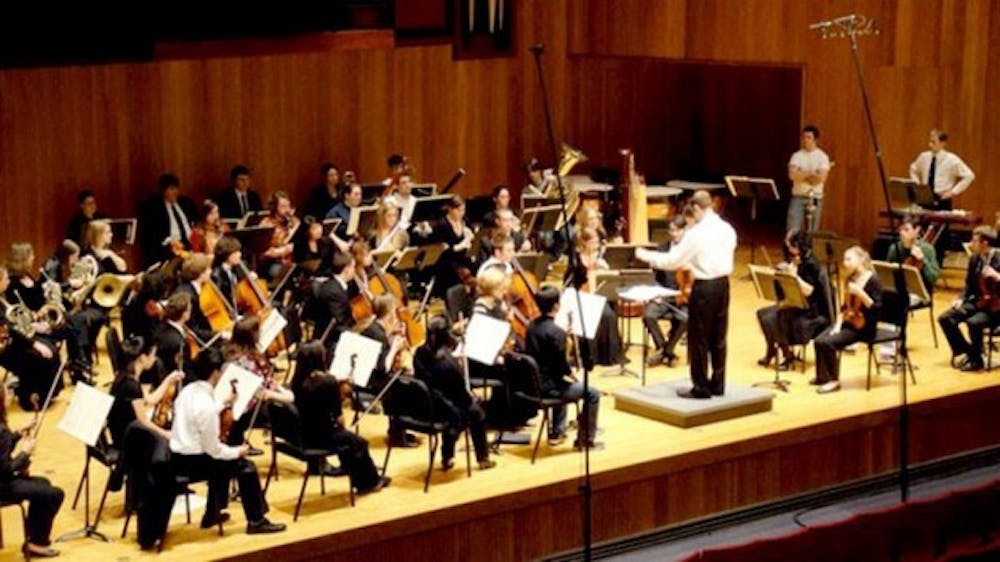It could be argued that a composer's work cannot be fully appreciated without understanding the historical context in which it was written or the music belongs to the country just as much as its composer.
UB's Symphony Orchestra hopes to explore such a theory tonight.
On Friday, the UB Symphony Orchestra will premiere works from Polish composer Witold Roman Lutoslawski at Lippes Concert Hall inside Slee Hall. Lutoslawski's cello piece is focused around the idea of nationalism in music and it will be performed by UB graduate student Tyler J. Borden.
The concert is loosely based off the work of Lutoslawski's cello concerto, which was composed in 1970. The piece explores Lutoslawski's romantic ideals of artistic freedom and the role society has to the artist.
Lutoslawski was a Polish composer and conductor and one of the major European composers of the 20th century. Some of his most famous pieces include four symphonies, a string quartet and several instrumental concertos like the one premiering this Friday night for the cello.
According to Daniel Bassin, musical director for the UB Symphony Orchestra, the cello piece begins with a small solo from the cello before being interrupted by the brass instruments.
"The cello is meant to represent the artist, while the brass instruments are meant to symbolize the oppressors - the authoritative figures - which only interrupt the artist at work," Bassin said.
The entire show, including the other pieces from Benjamin Britten, Giuseppe Verdi and Richard Wagner, will work around this idea between the artist and their respected cultures.
The Wagner piece for instance, "The Keiser March," was originally meant to become the national anthem of Germany. The piece is more ceremonial than romantic.
Verdi's "Overture to Nabucco"is much more of a marshal ethos, which ties in nicely to the Lutoslawski concept of the state as a powerful presence over the artist.
UB concert manager Philip Rehard is particularly interested in the ability to distinguish the origins of the music the orchestra will play - for example, the difference between an Italian piece of music like Verdi's and a German piece of music like Wagner's.
"One thing that interests me personally is the question of whether or not many of our concert patrons are curious about the notion of identifying musical ideas with particular countries or ethnicities," Rehard said. "I really enjoy listening for those qualities in a piece of music or body of work."
Borden has been practicing for the last year for this concert, but he believes practicing with an entire orchestra is a different experience.
"[Playing with an orchestra] totally changes everything ... the orchestra just swallows you up," Borden said.
According to Borden, Lutoslawski's technique is responsible for this overwhelming aural display and he considers it an important element to consider when discussing the meaning of the piece.
Tonight's show begins at 7:30 p.m. On April 24, the UB Symphony Orchestra will feature works from Franz Pete-Schubert.
Email: arts@ubspectrum.com





